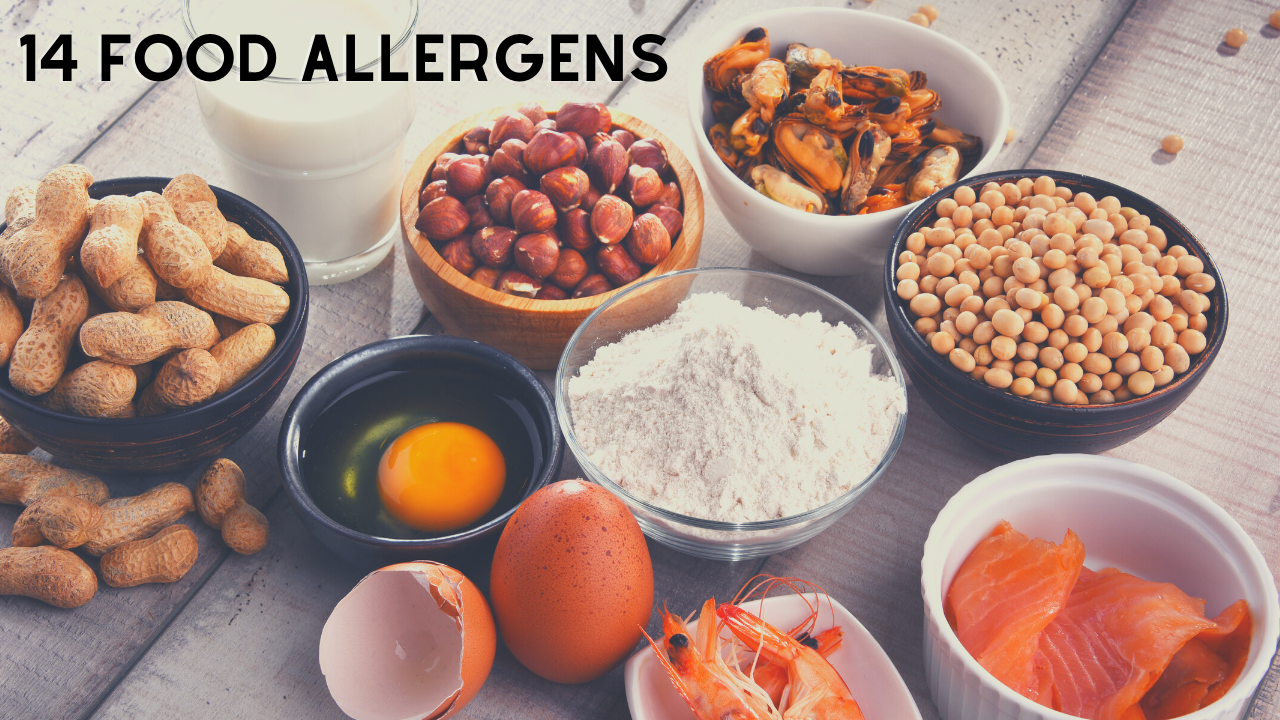The 14 Food Allergens and How to Avoid Them
Jason Kearns

Food allergens and allergic reactions are a growing concern for many people. According to the World Allergy Organisation, up to 30% of the global population is affected by some form of food allergy.
These allergies can range from mild to severe, and can even be life-threatening.
These allergies can range from mild to severe, and can even be life-threatening.
These are the 14 food allergens recognised by the EU:
-
Cereals containing gluten
-
Crustaceans
-
Eggs
-
Fish
-
Peanuts
-
Soybeans
-
Milk
-
Nuts
-
Celery
-
Mustard
-
Sesame seeds
-
Sulphur dioxide and sulphates
-
Lupin
-
Molluscs
What are the symptoms of a Food Allergy?Symptoms of a food allergy can vary but may include hives, swelling, difficulty breathing, and dizziness. In severe cases, anaphylaxis can occur, which can be life-threatening if not treated promptly.It's important to be aware of the potential presence of these allergens in the food we eat.
Here are some tips for avoiding Food Allergens:
Read labels carefully: Food manufacturers are required to list the presence of any of 14 allergens on their product labels. Be sure to read the ingredient list carefully and avoid products that contain the allergens you need to avoid.
Ask questions: If you're dining out, don't be afraid to ask your server or chef about the ingredients in a dish. They must provide you with information about the presence of any allergens that are contained within the field, food allergens should be displayed on menus and packaging.
Here are some tips for avoiding Food Allergens:
Read labels carefully: Food manufacturers are required to list the presence of any of 14 allergens on their product labels. Be sure to read the ingredient list carefully and avoid products that contain the allergens you need to avoid.
Ask questions: If you're dining out, don't be afraid to ask your server or chef about the ingredients in a dish. They must provide you with information about the presence of any allergens that are contained within the field, food allergens should be displayed on menus and packaging.
Be prepared: If you have severe allergies, it's a good idea to carry an epinephrine auto-injector with you at all times in case of an allergic reaction.
Avoid cross-contamination: Commercial food suppliers are required to have procedures in place to avoid cross-contamination. When preparing food at home, be sure to use separate cutting boards, utensils, and cooking surfaces for allergen-containing foods to prevent cross-contamination.
If in doubt just walk out: If the restaurant you are dining at does not provide you with information in relation to food allergens, don't take the risk, if in doubt just walk out.
Taking these steps, can help prevent allergic reactions and ensure the safety of yourself and others with food allergies.
Check out our Food Safety courses which all include Allergen Awareness modules.
Food Safety Level 1 and 2
Guardian Safety's online training platform combines online training with live classes over Zoom/Teams. Our system allows learners to network and communicate with each other, keeping the social aspect of training without the need to travel to a training centre.
Featured links
-
Personal Access Data Request
Connect with us
Write your awesome label here.
An ergonomic Chair should have the
following Characteristics:-
-
Adjustable in Height
-
Move easily
-
The back should tilt
-
Suitable for the weight of the user
-
Footrest provided if requested
-
Adjustable in Height
